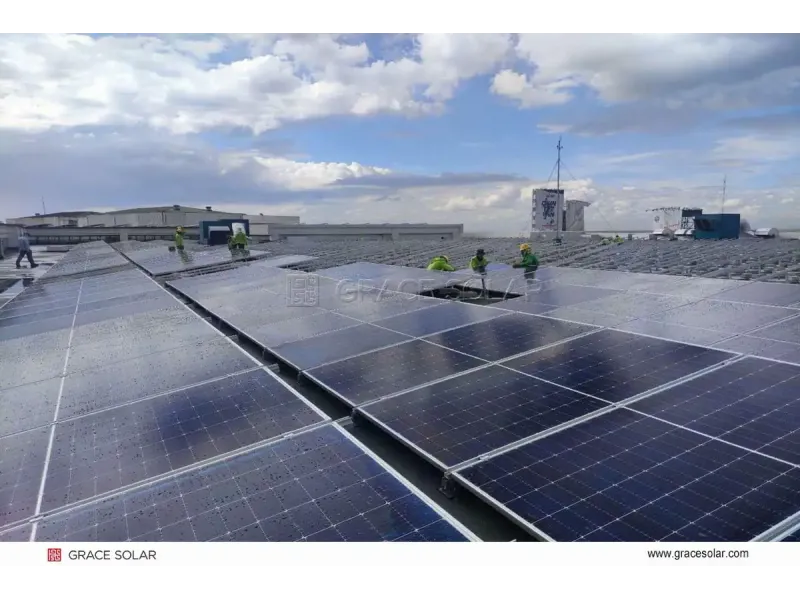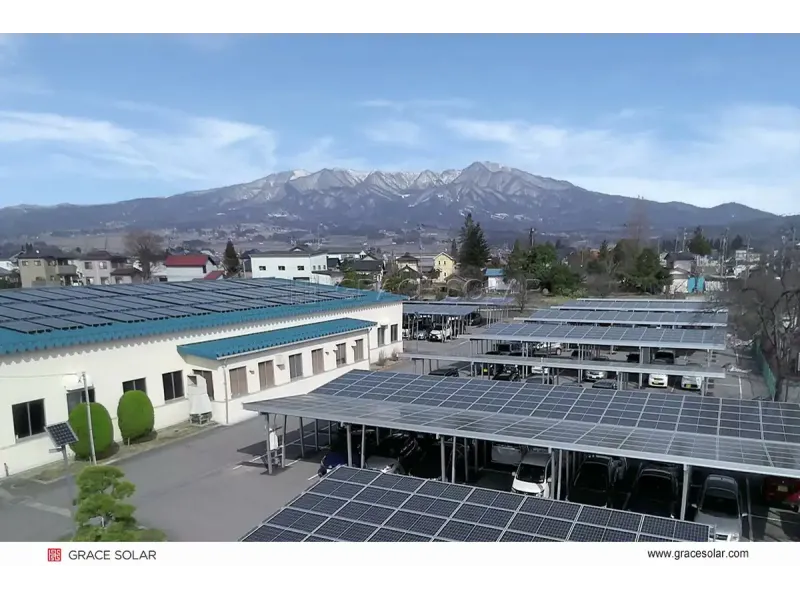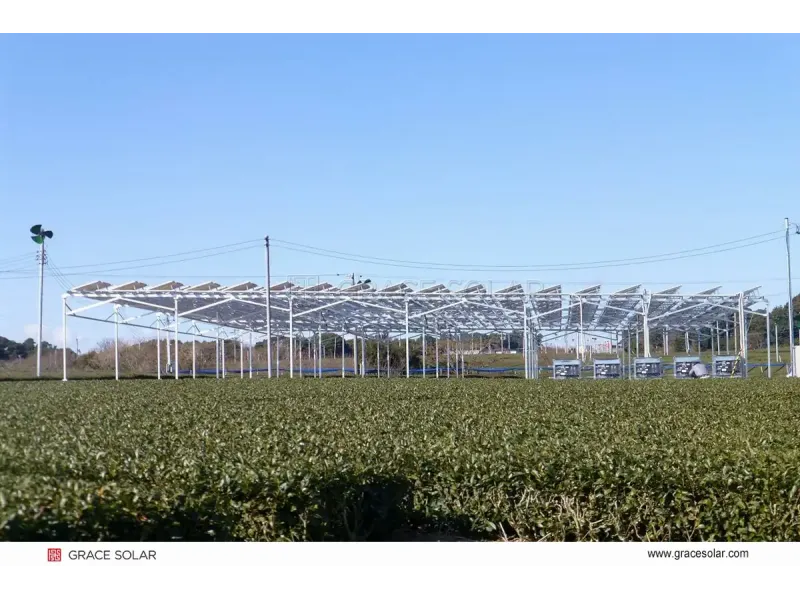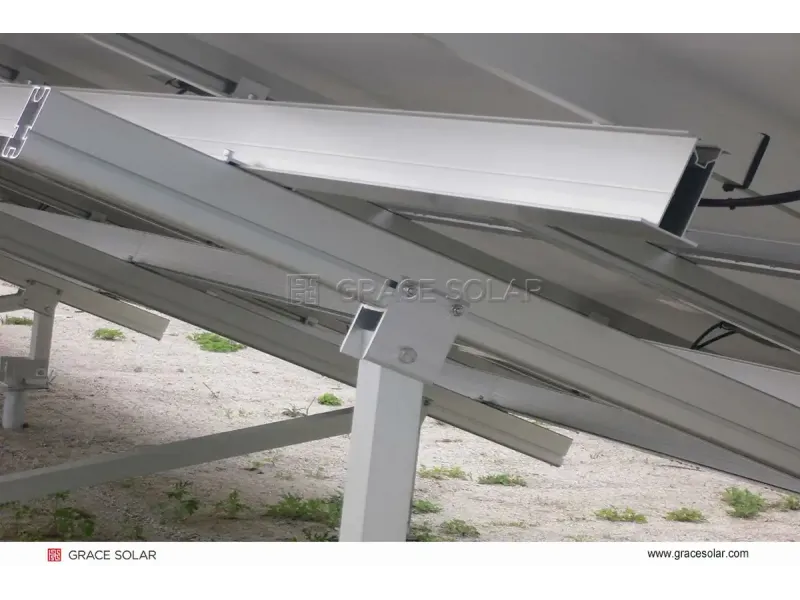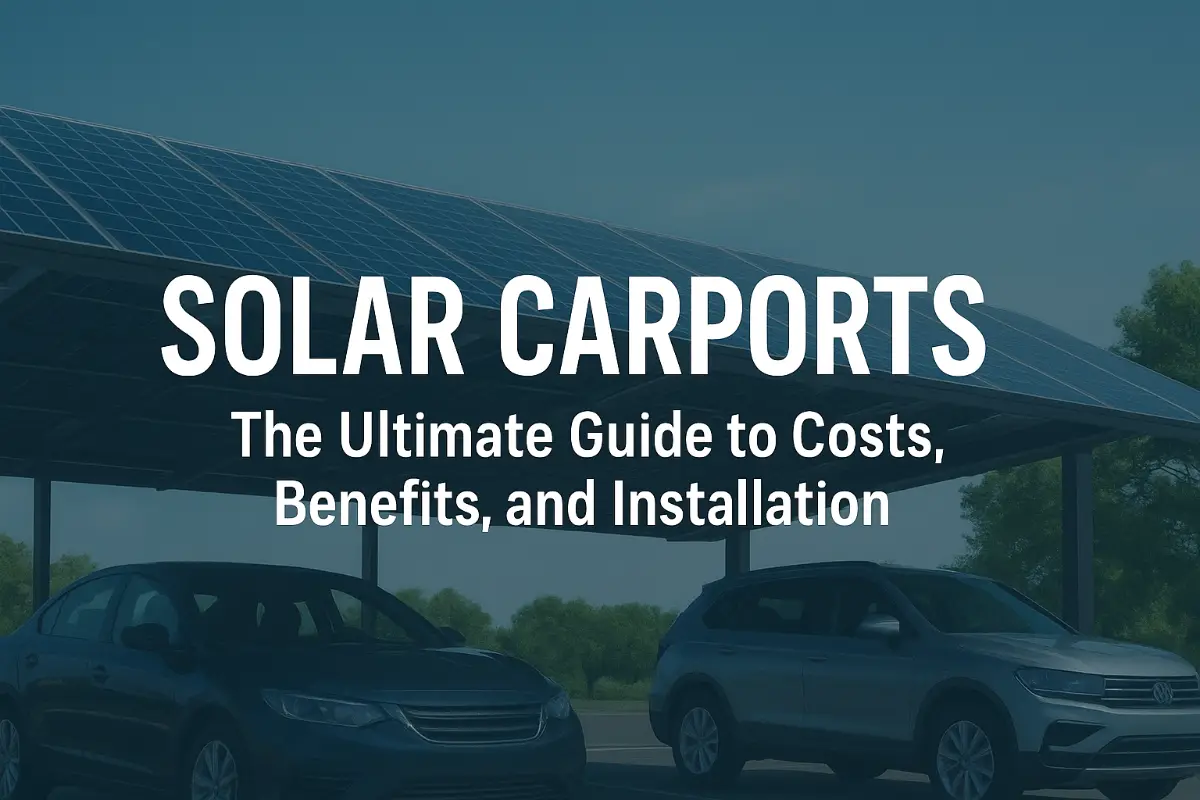
What is a Solar Carport?
A solar carport is an innovative structure that provides sheltered parking while generating clean, renewable electricity. Unlike traditional ground-mounted or rooftop systems, it transforms underutilized parking space into a dual-purpose asset. By integrating a robust canopy made of photovoltaic (PV) panels, it protects vehicles from the elements and converts sunlight into power for your home, business, or Electric Vehicle (EV). It's the perfect solution for properties with unsuitable roofs or limited space.
The global solar carport market is experiencing rapid growth, projected to more than double by 2032 according to Fortune Business Insights. This surge is driven by increasing EV adoption, rising energy costs, and the growing need for sustainable infrastructure solutions that maximize space utilization.
How Does a Solar Carport System Work?
The technology behind a solar carport is both elegant and powerful, functioning like any premium grid-tied solar array but with distinct advantages in placement and orientation.
1. Energy Capture
High-efficiency solar panels mounted on the carport's structure absorb photons from sunlight. These panels are specifically engineered for durability and maximum energy production in various weather conditions.
2. DC to AC Conversion
An inverter converts the generated Direct Current (DC) electricity into usable Alternating Current (AC) electricity for your property. Modern systems use advanced microinverters or string inverters optimized for carport configurations.
3. Consumption & Distribution
This clean energy powers your operations, reducing dependence on the traditional grid. Excess power is fed back to the grid for credits through net metering programs available in most regions.
4. Storage (Optional)
Systems can be integrated with a Battery Energy Storage System (BESS) to store surplus energy for use at night or during power outages, providing energy independence and resilience.
Comprehensive Comparison: Solar Carports vs. Other Solar Solutions
Understanding how solar carports compare to traditional solar installations helps in making an informed decision:
Solar Carports vs. Rooftop Solar
While rooftop solar remains popular, solar carports offer distinct advantages: optimal orientation and tilt angles, easier maintenance access, no roof penetration concerns, and dual land use. They're ideal when roof space is limited, improperly oriented, shaded, or structurally insufficient.
Solar Carports vs. Ground-Mounted Systems
Ground-mounted systems require dedicated land, while solar carports utilize existing parking space, making them perfect for urban and commercial settings where land is scarce and expensive.
Types of Solar Carports: Find Your Perfect Fit
Residential Solar Carports
Designed for homes, these structures typically cover 1-4 vehicles. They are a fantastic solution for homeowners with limited roof space, unsuitable roof angles, or those who want to integrate EV charging directly into their parking area. Residential systems typically range from 3kW to 10kW capacity. Explore our residential solutions.
Commercial Solar Carports
Large-scale structures that cover vast parking lots for businesses, supermarkets, universities, and hospitals. They benefit from economies of scale, provide shaded parking for customers and employees, and dramatically reduce operational energy costs. Commercial installations can range from 20kW to multiple megawatts. Discover our commercial systems.
Design Variations
Solar carports come in several design configurations: Cantilever (single-side support), Single-Post (central row support), and Double-Post (two rows of support) designs. Each offers different aesthetic appeals, spanning capabilities, and suitability for various weather conditions.
Top 5 Benefits of Investing in a Solar Carport
1. Dual Land Use & Maximum ROI
Generate a return on your parking space. You create value from previously unused area, combining energy savings with vehicle protection. Studies show that parking lots cover 14-20% of urban areas, representing massive untapped potential for energy generation.
2. Optimal Energy Production
Unlike fixed roof angles, carports can be engineered by experts for the perfect tilt and orientation to maximize sun exposure and energy yield throughout the year. This optimized positioning can increase energy production by 10-20% compared to suboptimal roof installations.
3. Seamless EV Charging Integration
Pair your system with an EV charger to fuel your vehicle with 100% renewable, free energy from the sun, right where you park. This combination future-proofs your property as electric vehicle adoption accelerates globally.
4. Superior Vehicle Protection
Provide shade, protecting vehicles from harsh UV rays, rain, snow, and hail, which reduces interior temperatures and prolongs vehicle life. This protection can significantly reduce maintenance costs associated with weather damage.
5. Increased Property Value & Sustainability
Add functional, sustainable infrastructure that enhances the value and appeal of your property while demonstrating a commitment to clean energy. Commercial properties with solar carports often see increased customer and employee satisfaction.
Solar Carport Costs and Financial Incentives (2025)
Understanding the investment required and available financial benefits is crucial for decision-making:
Cost Breakdown
According to market data, solar carport costs typically range between $3.00 and $4.50 per watt for residential systems, while commercial systems benefit from economies of scale, typically costing $2.75 to $3.50 per watt. A typical 5kW residential system may range from $15,000 to $22,500 before incentives.
These costs include the solar panels, carport structure, electrical components, inverter, and professional installation. The structure itself represents approximately 20-30% of the total system cost.
Financial Incentives
The U.S. federal Investment Tax Credit (ITC) offers a 30% tax credit on the total installed cost, including the structure and panels. Many states offer additional rebates, tax exemptions, and net metering programs, dramatically improving payback periods. Additional incentives may be available for systems that include EV charging capabilities.
Return on Investment Analysis
Most solar carport systems achieve payback periods of 5-8 years, with commercial systems often achieving faster returns due to higher energy consumption. Over its 25-30 year lifespan, a system can generate returns that are 3-4 times the initial investment, not accounting for rising energy costs.
The Professional Installation Process: What to Expect
A properly installed solar carport requires professional expertise and careful planning:
1. Site Assessment & Planning
A professional evaluates your location's sun exposure, space, soil conditions, and local climate. This includes shading analysis, wind and snow load calculations, and determining the optimal system size for your energy needs.
2. Design & Engineering
Experts design the structure, calculating precise wind and snow loads (AS/NZS1170 standards) and creating custom plans. This phase includes electrical system design and ensuring compliance with all local regulations.
3. Permitting & Approvals
Your installer handles securing the necessary local building and electrical permits, which may include zoning approvals, structural engineering stamps, and utility interconnection agreements.
4. Construction & Installation
The foundation and galvanized steel or aluminum structure are installed, followed by panel mounting and electrical integration. Professional installation typically takes 2-4 weeks depending on system size and complexity.
5. Inspection & Activation
The system is inspected by local authorities and the utility company before being activated. This ensures safety compliance and qualifies the system for incentives and net metering programs.
Why Choose Grace Solar for Your Project?
A solar carport is a long-term investment that must withstand decades of environmental stress. At Grace Solar, we live by our core value: "Do it right the first time." Here's how we deliver on that promise:
Global Expertise & Experience
Ranked among the top 5 global solar mounting system manufacturers, our systems have a cumulative installed capacity of over 48GW across 100+ countries. Our experience in diverse climates and environments ensures we can handle any project challenge.
Certified Quality & Bankability
Our products and components are UL, TUV, CE, and JIS certified, backed by wind tunnel test reports. We provide bankability reports, giving installers and financiers confidence in the system's durability and financial returns.
Engineering Excellence
With over 100 patents and experience from the demanding Japanese market (where we hold the #1 market share), our designs are optimized for heavy snow loads and extreme weather, ensuring your structure stands firm as rock. Our GS-Smart mounting system represents the latest innovation in solar carport technology.
Comprehensive Support
From initial consultation to system design, component supply, and technical support, we provide end-to-end solutions. Our team of highly sophisticated engineers ensures your project delivers maximum performance and return on investment.
Frequently Asked Questions About Solar Carports
How much electricity can a solar carport generate?
A typical residential solar carport with 10-12 panels can generate 3,000-5,000 kWh annually, enough to power 30-50% of an average home's electricity needs. Commercial systems can generate megawatts of power annually, significantly reducing operational costs.
Can I install a solar carport myself?
While DIY kits exist, professional installation is strongly recommended. Solar carports require structural engineering, electrical expertise, and compliance with building codes and regulations. Improper installation can lead to structural failure or electrical hazards.
How long does a solar carport last?
The structural components of a quality solar carport are designed to last 25-30 years, with solar panels typically warrantied for 25 years. Regular maintenance ensures optimal performance throughout its lifespan.
Are solar carports suitable for all climates?
Yes, when properly engineered. Our systems are designed for specific wind and snow loads, making them suitable for everything from hurricane-prone coastal areas to heavy snowfall regions.
Get Started with Your Solar Carport Project
Ready to transform your parking space into a clean energy powerhouse? Contact Grace Solar today. Our team of experts will help you design a system that delivers the fastest payback and most stable growth, bringing our trustworthy products and service to your project.
With our global experience, engineering excellence, and commitment to quality, we ensure your solar carport investment will stand firm as rock for decades to come, providing clean energy and vehicle protection while demonstrating your commitment to sustainability.


